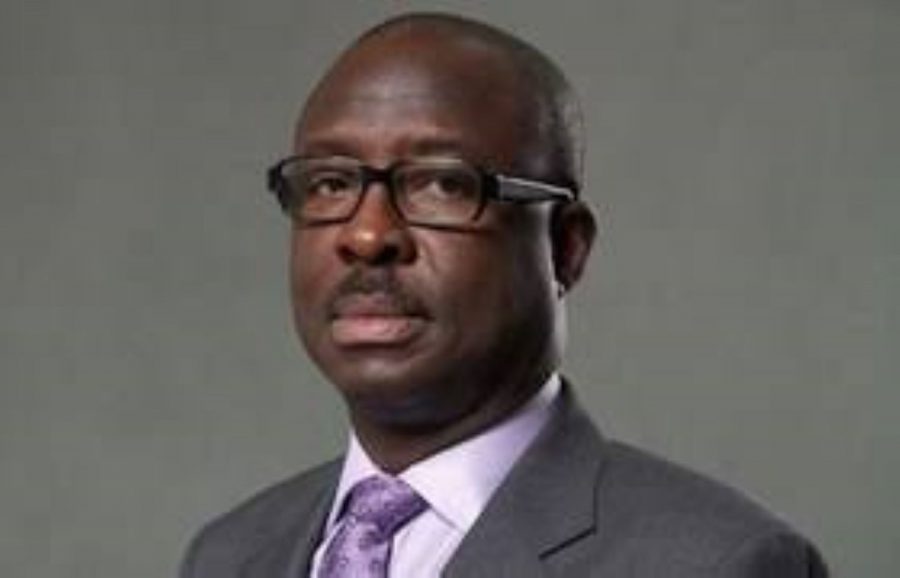The Federal Government has commissioned $1 billion (N364 billion) locally-assembled vehicles through collaboration with the National Automotive Design and Development Council (NADDC).
The disclosure was made by the Minister of Industry, Trade and Investment, Mr Adeniyi Adebayo.

According to Adebayo, the vehicles, which were produced by 17 firms, include pioneers of made-in-Nigeria vehicles such as Coscharis, Nissan, Innoson, Ford and Elizade Motors.
Adebayo made known that the locally-assembled vehicles would be used at the Argungu Motor Rally which is an integral part of the popular festival held in Kebbi annually, the Argungu Annual International Fishing and Cultural Festival. This Argungu Motor Rally is slated to be kicked off by the President Muhammadu Buhari in Abuja.
READ ALSO: Nigerians react as Anambra lawmakers reject Prado SUVs for Innoson SUVs
More details: While revealing the plan of the NADDC to turn the rally into an annual event for the auto industry, the minister acknowledged the growth of the auto industry. He said Nigeria was moving forward in the area of automotive assembly, adding that from zero production level in 2012, the industry had recorded tens of thousands of newly assembled vehicles.
According to him, with the inauguration of the 10-year Nigerian Automotive Industry Development Plan (NAIDP 2013-2023) in 2013, about 62 companies have been registered to assemble vehicles.
“The vehicles and brands for unveiling are a testament to the zeal and commitment of the automotive industrial subsector to the present government’s efforts towards diversification of the non-oil sector of the economy. The role of the NADDC in reviving and sustaining the automotive sector has greatly helped in stimulating growth and development in the Nigerian automotive industry.’’

Also commenting on the commissioning was Minister of State for Industry, Trade and investment, Amb. Mariam Katagum, who charged the auto companies to do more in the area of local content and have faith in the Federal Government’s commitment to economic diversification.
READ ALSO: FG receives N185m from Islamic Bank to support textile, agric sectors
Katagum, who was represented by the ministry’s Permanent Secretary, Dr Nasir Gwarzo, said that the unveiling of the vehicles that were also slated to take part in the Argungu Motor Rally showed what the Nigerian automotive industry could offer.












We should be commissioning electric vehicle lines!
As an Automotive engineer, i can inform you guys though this seems like great news for Nigeria, in actual fact it isn’t, I’ll explain below.
1. In advanced high tech industries say Germany a finished car is made by 1000 to 2000 suppliers . OEM->1st tier->2nd tier->3rd tier and in some cases even 4th tier suppliers this create a supply chain of various parts and component manufacturers, thereby creating a viable strong manufacturing economy with a very good know how. This is not the case in Nigeria most of the components used by INNOSON and others are imported from China.
2. Secondly, my explanation of 1 above also shows how the government is digging a hole in it’s foreign reserves. Production and quality of these vehicles aren’t trusted by the Nigerians therefor the average Nigerian won’t invest in made in Nigerian cars at least not yet. Parts to make those vehicles are imported in USD or RMB exerting more pressure on the Naira leading to devaluation. Devaluation leads to an upset public. I could go on for days on how a lack of clear oversight continues to kill the Nigerian economy even more than corruption does, but i won’t instead i will propose a realistic solution as item 3 below.
3. Such monetary support should be invested in proper educational institutions of which we don’t have 1 and developing SMEs let them grow organically. The government can focus on sector by sector: take the automotive sector(Industry) as an example, Simple mechanical components like gear manufacturing should be developed by SMEs with serious backing of the government. Actuators are also a good parts that should be produced locally. This is the route to follow if we are to ever realistically produced made in Nigeria cars that people will actually buy. Plus all my time in Nigeria i never saw or heard an advert for INNOSON vehicles this is very worrying and implies the company strategy is flawed or it dependency on governmental aid is appalling.
Well said Mr. Auto
However, as much as I can relate to your argument, I also believe that the collective effort of the auto companies involved and the FG support is a right move in achieving the growth we both earnestly desire for the industry.